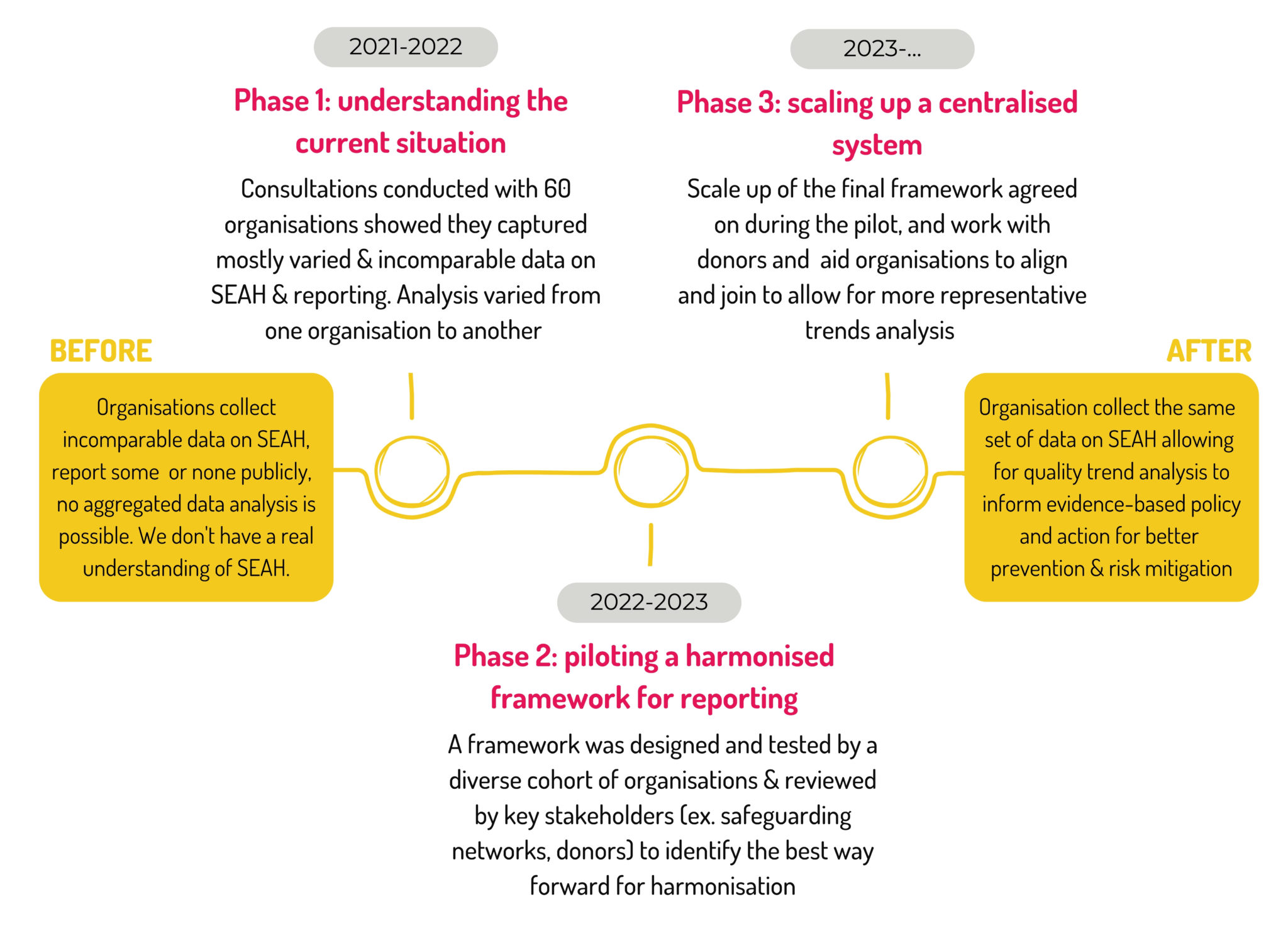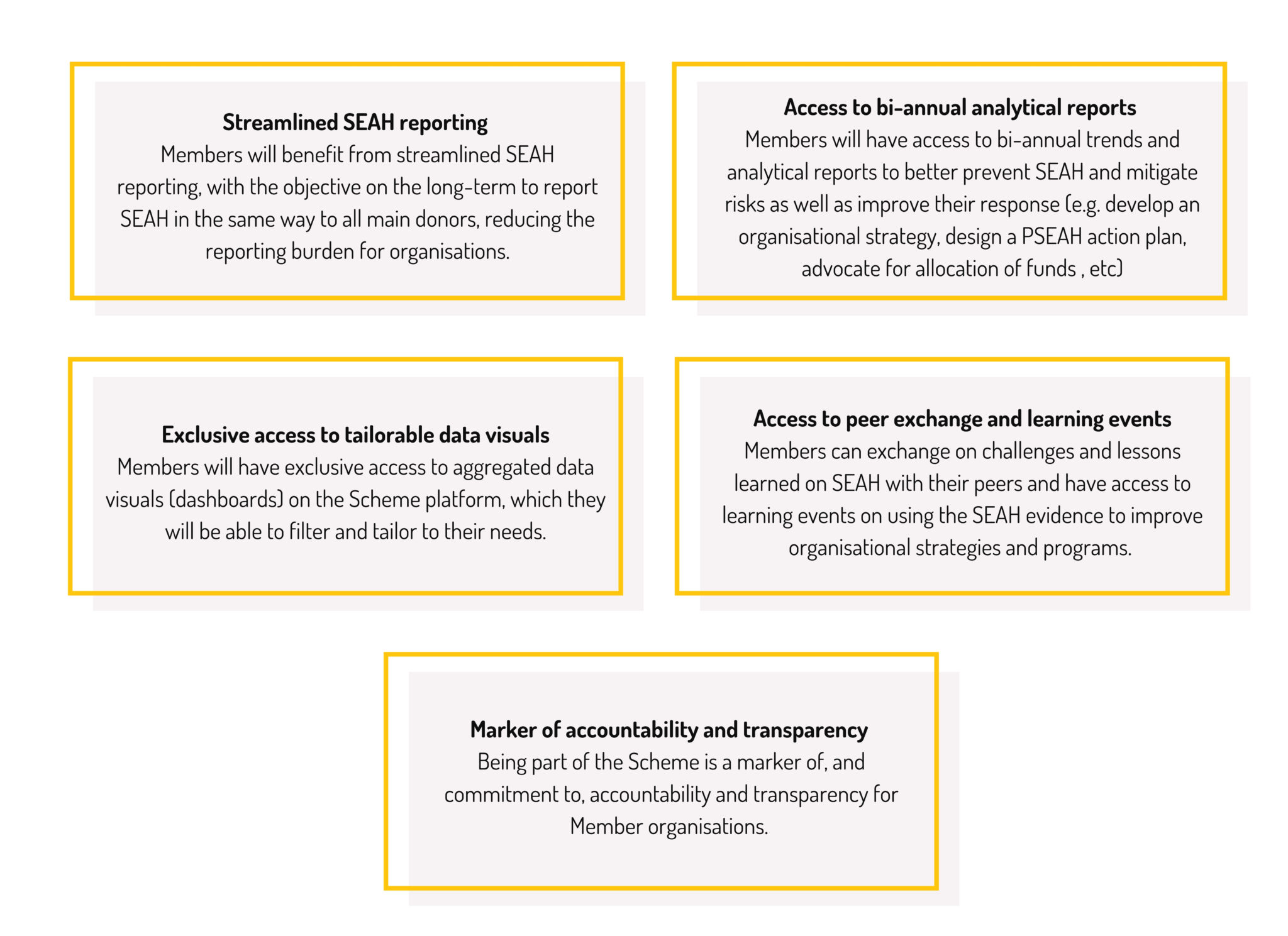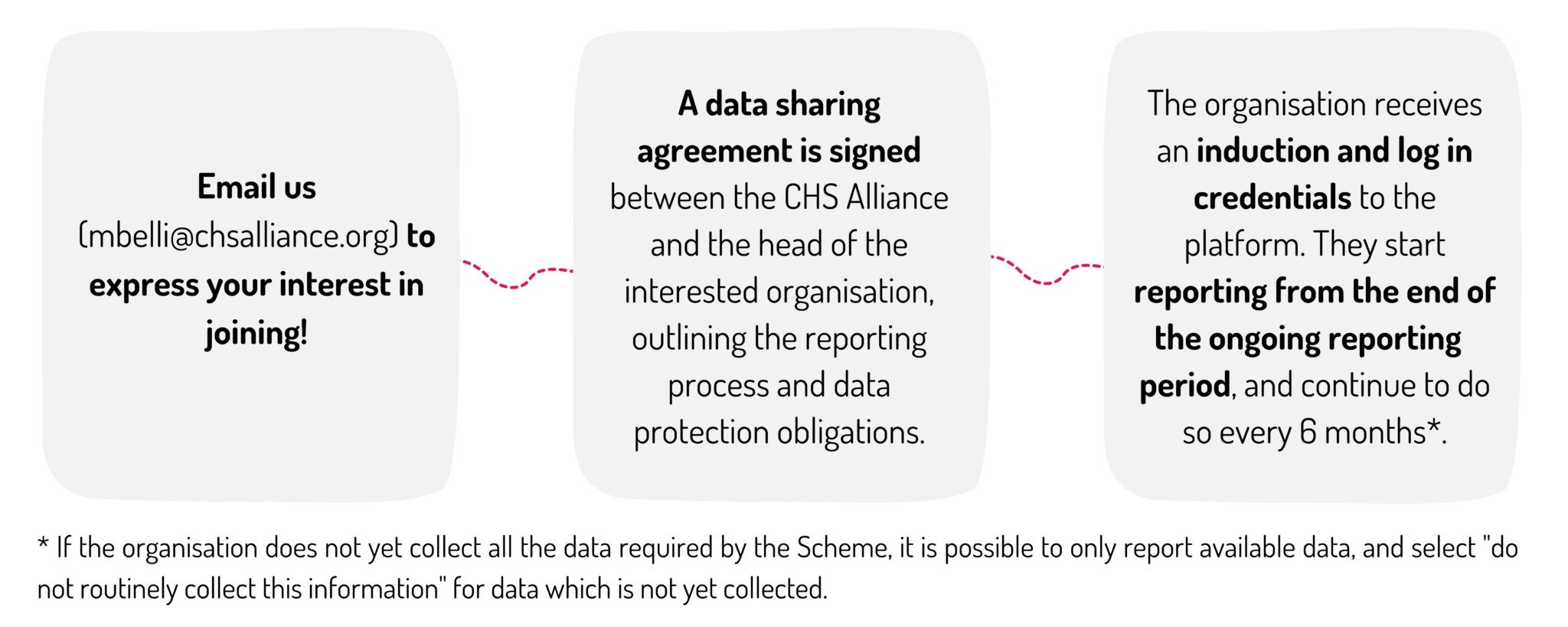About the Harmonised Reporting Scheme
The CHS Alliance and the Steering Committee for Humanitarian Response (SCHR), with financial support from the Foreign Commonwealth Development Office (FCDO), have joined forces to increase accountability and transparency on sexual exploitation, abuse and harassment (SEAH) in the aid sector and reduce under-reporting through the development of a harmonised reporting Scheme for SEAH incidents.
This harmonised system enables the collection and reporting of comparable data on SEAH to analyse trends and patterns, helping us better understand the overall issue of SEAH to prioritise corrective actions and resource mobilisation.
Watch a short introduction to the Scheme and how it can help you:
The latest HRS report sharing the main trends from recent SEAH data is now available here!
Members of the Scheme report their SEAH incidents twice a year into an online platform, to which they have individual and exclusive access to (other organisations or the public will not see what they report).
The SEAH data collected and reported includes no identifiable information (for the organisation, the victim/survivor and the alleged perpetrator), and is mixed with all data from other organisations to ensure all SEAH incidents reported are fully anonymised. The data is then aggregated and analysed in-depth to identify various SEAH trends that can be shared in a safe, anonymous way.
The SEAH Harmonised Scheme, through its regular trend analyses, will bring valuable evidence for organisations and the aid sector more broadly, to inform and improve PSEAH policies, strategies, and actions for better SEAH risk mitigation, prevention, and response. They also allow for increased accountability and transparency, which, combined with better victim/survivor outcomes, are key to tackling the issue of under-reporting on SEAH in the aid sector.
Do you have questions? Check out our Frequently Asked Questions for quick answers!
Setting up the Harmonised Scheme: Our participatory approach

What is the added value of joining the Scheme?

How to join the Scheme
Contact us at seah.hrs@chsalliance.org to express your interest in joining. The Scheme is open to any organisation operating in the aid sector (non governmental organisation – international or national, private sector organisations, civil society organisations).
The joining process is easy, quick, and straightforward and will follow the rapid three steps below:

Expectations from Scheme Members
Scheme members simply have to report non-identifiable data on SEAH incidents using the agreed- upon data fields every 6 month onto the Harmonised Reporting Scheme platform. The data on the platform will be aggregated with other reported data to ensure anonymisation. No personal information is collected, either on the victim/survivor, the alleged perpetrator, or the organisation.
The time commitment largely depends on how advanced your organisation is in terms of SEAH data collection, and your caseload. If your organisation already has an internal database where SEAH incidents are stored, being part of the Scheme should only take you on average an hour every 6 months.
Donor Support
“The UK’s FCDO supports the SEAH data harmonisation scheme. It is a valuable tool to encourage reporting, analyse trends, manage risk, develop policy and improve transparency and accountability at global and country levels. Our partners can use the information from the scheme’s data fields to inform us about SEAH allegations. This makes reporting easier. We may require further information for case management purposes. We continue to expect prompt reporting as set out in our funding agreements.”
– Safeguarding Unit, Foreign, Commonwealth & Development Office
“DG ECHO has largely aligned the data fields of its individual case reporting template to the Harmonised Reporting Scheme”.
– Anne SCHLEY, DG ECHO Compliance Officer
Hear from supporters of the Scheme
“We need to flip the narrative around reporting by underscoring it as one of the key ways we will be better able to prevent and respond to SEAH incidents.”
– Elizabeth Pender, Senior Advisor, Safe and Accountable Programming, USAID’s Bureau for Humanitarian Assistance.
Read full interview here
“We want to reassure organisations that signing up for the Scheme, reporting transparently and in doing so helping to address allegations is a positive step. [The Scheme] will mean we can better analyse patterns and develop evidence driven strategies and interventions to help target areas – both thematically and in terms of locations – with the highest risks of SEAH.”
– Dr Kweku Ackom, Health Advisor, Safeguarding Unit, UK’s FCDO.
Read full interview here
“At the moment, we simply don’t have the adequate quality of data to know what we’re facing; let alone what forms it takes. This is like fighting blindfolded. The more quality data we have the better we can see. See enough to chart a way to stop this unacceptable abuse happening to the people most deserving of support and care.”
– Wonder Mufunda, Chief Executive Officer, Centre for Humanitarian Analytics.
Read full interview here
“Sharing of information and reporting incidents of SEA can help us to understand the scope and complexity of the problem. It will also allow us to address the causes and to support victims and survivors more effectively. We are committed to working towards the harmonization of the UN iReport and the SEAH Harmonised Reporting Scheme to simplify reporting, eliminate duplication, and increase transparency and accountability across the aid sector.”
– Christian Saunders, Special Coordinator on improving the United Nations response to sexual exploitation and abuse.
